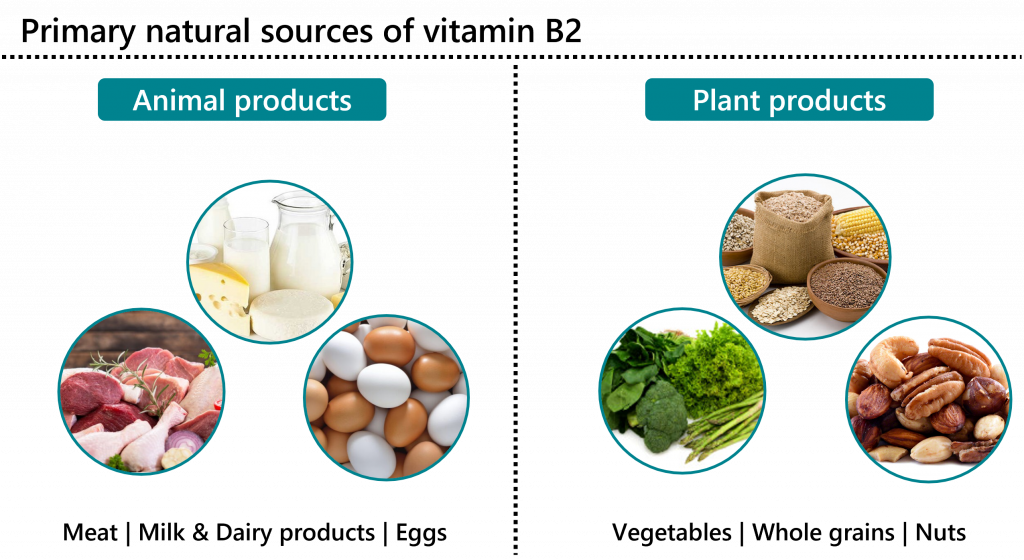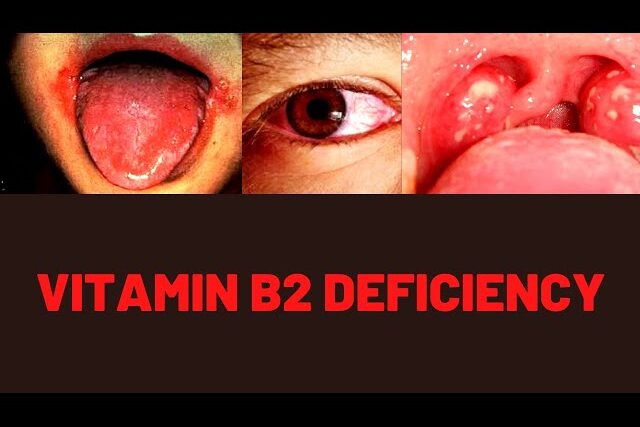Introduction
In the realm of essential nutrients, Vitamin B2, commonly known as Riboflavin, stands as a crucial player in supporting optimal health and vitality. Vitamin B2 Riboflavin is a water-soluble vitamin generated by all plants and most microbes. It is required for human and animal development and reproduction.
Riboflavin’s biological role is as a precursor for the coenzymes flavin adenine dinucleotide (FAD) and flavin mononucleotide (FMN), which are primarily engaged in redox reactions in all organisms. These flavocoenzymes are involved in the metabolism of carbohydrates, lipids, ketone bodies, and proteins, from which living organisms obtain the majority of their energy. In this comprehensive guide, we will delve into the multifaceted benefits of Vitamin B2 Riboflavin, exploring its roles, sources, potential deficiencies, and how to ensure adequate intake for overall well-being.
The Role of Vitamin B2 Riboflavin in the Body
Riboflavin is involved in numerous physiological processes, making it indispensable for overall health. Here are some key roles of Vitamin B2 Riboflavin:
- Energy Production: Riboflavin participates in the electron transport chain, facilitating ATP production, the body’s primary energy currency.
- Coenzyme: As a coenzyme, it facilitates various enzymatic reactions essential for converting food into energy.
- Cellular Growth and Repair: Riboflavin supports the synthesis of DNA and RNA, crucial for cell division and tissue repair.
- Antioxidant Defense: As an antioxidant, Riboflavin helps neutralize free radicals, reducing oxidative stress and inflammation.
- Eye Health: Riboflavin plays a vital role in maintaining healthy vision and preventing conditions like cataracts and age-related macular degeneration.
- Vitamin B2 Riboflavin serves as a vital component in the metabolism of fats, proteins, and carbohydrates.
- Synthesis of other vitamins: Riboflavin contributes to the synthesis of other B vitamins, such as niacin (B3) and pyridoxine (B6), further amplifying its significance in overall metabolic function.
Benefits of Vitamin B2 Riboflavin for Energy
Adequate intake of Vitamin B2 Riboflavin is crucial for sustaining optimal energy levels. By supporting efficient energy metabolism, Riboflavin helps combat fatigue and lethargy, promoting vitality and endurance. Individuals with active lifestyles or those experiencing chronic fatigue may particularly benefit from ensuring sufficient Riboflavin intake to support their energy demands.
The benefits of Vitamin B2 Riboflavin extend far beyond energy production. Here are some ways Riboflavin contributes to overall well-being:
- Enhanced Energy Levels: By optimizing energy metabolism, Riboflavin combats fatigue and promotes sustained vitality.
- Improved Skin and Hair Health: Riboflavin supports the growth and repair of skin tissues, contributing to a healthy complexion and strong, lustrous hair.
- Boosted Immune Function: Riboflavin plays a role in immune system function, helping the body fend off infections and illnesses.
- Alleviation of Migraines: Some studies suggest that Riboflavin supplementation may reduce the frequency and severity of migraines in certain individuals.
- Cardiovascular Support: Riboflavin contributes to the metabolism of homocysteine, an amino acid linked to heart disease risk, thereby promoting cardiovascular health.
Vitamin B2 Riboflavin and Its Impact on Overall Health
Beyond its role in energy metabolism, Vitamin B2 Riboflavin exerts a profound influence on overall health. It serves as a potent antioxidant, scavenging harmful free radicals and protecting cells from oxidative damage. This antioxidant activity helps maintain the health of various tissues, including the eyes, skin, and nervous system. Additionally, Riboflavin supports proper growth and development, contributes to red blood cell production, and aids in the maintenance of healthy vision.
Food Sources of Vitamin B2 Riboflavin

Fortunately, Riboflavin is abundant in many common foods, making it relatively easy to meet your daily requirements. Sources include dairy products such as milk, cheese, and yogurt, as well as lean meats, poultry, and fish. For those following a plant-based diet, options like almonds, mushrooms, spinach, and fortified cereals can provide ample amounts of Riboflavin. Including a diverse array of these foods in your meals ensures a steady intake of this essential nutrient.
Here are some excellent sources of Vitamin B2 Riboflavin:
| Food Source | Riboflavin Content (mg per serving) |
| Beef Liver | 3.5 |
| Salmon | 0.6 |
| Milk | 0.4 |
| Yogurt | 0.3 |
| Eggs | 0.3 |
| Almonds | 0.3 |
| Spinach | 0.2 |
| Mushrooms | 0.1 |
Including a variety of these foods in your diet ensures a steady intake of Riboflavin to support optimal health.
Vitamin B2 Riboflavin Deficiency and Symptoms
Despite its prevalence in many foods, Riboflavin deficiency can still occur, especially in individuals with poor dietary habits or underlying health conditions. Common symptoms of Riboflavin deficiency include:

- Fatigue and weakness
- Cracked lips and mouth sores
- Inflamed tongue
- Skin disorders
- Vision problems
If you experience any of these symptoms, consult with a healthcare professional to determine if Riboflavin deficiency may be the cause.
Recognizing these symptoms early is crucial for prompt intervention and prevention of complications.
How to Incorporate More Vitamin B2 Riboflavin into Your Diet
Ensuring adequate intake of Vitamin B2 Riboflavin can be achieved through simple dietary modifications.
- Include eggs, nuts, and leafy greens in your meals and snacks.
- Choose fortified foods like cereals and nutritional yeast for an extra Riboflavin boost.
- For individuals with increased requirements or limited dietary intake, supplementation may be considered under the guidance of a healthcare professional.
Supplements and Vitamin B2 Riboflavin Dosage Recommendations

When supplementing with Vitamin B2 Riboflavin, it’s essential to adhere to recommended dosage guidelines to avoid potential adverse effects. The Recommended Dietary Allowance (RDA) for Riboflavin varies depending on age, gender, and specific health needs. Generally, adult men and women are advised to consume 1.1 mg and 1.3 mg of Riboflavin per day, respectively. Higher doses may be recommended for pregnant or lactating women and individuals with certain medical conditions. As always, consulting with a healthcare provider is advisable before initiating any supplementation regimen.
Precautions and Potential Side Effects of Vitamin B2 Riboflavin
While Vitamin B2 Riboflavin is generally well-tolerated, excessive intake from supplements may result in minor side effects such as yellow discoloration of urine. However, these effects are harmless and temporary. Nonetheless, individuals with certain medical conditions, such as kidney stones or specific genetic disorders, should exercise caution when supplementing with Riboflavin. It’s crucial to follow recommended dosage guidelines and seek medical advice if experiencing any adverse reactions.
Conclusion:
In conclusion, Vitamin B2 Riboflavin plays a pivotal role in supporting various physiological functions essential for overall health and vitality. From energy metabolism to antioxidant defense, Riboflavin’s contributions are indispensable for maintaining optimal well-being. By incorporating Riboflavin-rich foods into your diet and, if necessary, supplementing under the guidance of a healthcare professional, you can harness the power of Vitamin B2 Riboflavin to fuel your journey towards a healthier, more vibrant life. Embrace the potential of this essential nutrient and reap the rewards of enhanced vitality and vitality.
Reference:
https://www.frontiersin.org/articles/10.3389/fbioe.2020.570828/full?ref=barkandwhiskers.com

